November 2019: Olive Tree

Volume IV/Issue 8/November 2019


From The Editorial Desk
IF YOU THINK ITS MOTHER NATURE, BUT ITS NOT: IT'S GOD.
The earliest written and most reliably dated references to Mother Nature are found in Mycenaean Greek transcripts dated in 12 or 13 BC. The term Mother Earth is transliterated as “ma-ga” or “Mother Gaia.” This notion had its roots in the pre-Socratic philosophers who had “invented” Nature, and it was further championed by the Greek philosopher Aristotle. Other cultures have embraced the notion that “nature” had its own spirit and relevancy unique from God the Father. The American Indian is one such culture that believes that there is something called an “Earth Mother” that provides the water of life that gives them the abundant provision of food. In reality, no one but God provides our basic needs of food, shelter, water, and life.
The term Mother Nature is sometimes used in a general way to refer to the environment as a whole. The term is sometimes used in association with political and cultural ideologies such as global warming, environmentalism, and climate change. For some, news reports of rising temperatures, rising sea levels, savage wildfires, earthquakes, tsunamis, hurricanes, the emergence of new and even ancient diseases, and the like demonstrate that "Mother Nature" is a kind of capricious goddess who wreaks havoc throughout the earth.
It is God who controls the forces of nature: “He that maketh the earth by his power, that prepareth the world by his wisdom, and stretcheth out the heavens by his knowledge. At his voice he giveth a multitude of waters in the heaven, and lifteth up the clouds from the ends of the earth: he maketh lightnings for rain, and bringeth forth the wind out of his treasures.” (Jeremiah 10:12–13). It is also true that there are natural laws at work in our environment; these are systems God instituted ,”All the days of the earth, seedtime and harvest, cold and heat, summer and winter, night and day, shall not cease.” (Genesis 8:22). God created our world; human sin damaged it “For the expectation of the creature waiteth for the revelation of the sons of God. For the creature was made subject to vanity, not willingly, but by reason of him that made it subject, in hope: Because the creature also itself shall be delivered from the servitude of corruption, into the liberty of the glory of the children of God. For we know that every creature groaneth and travaileth in pain, even till now.” (Romans 8:19–22). Yet God still holds our world together “For in him were all things created in heaven and on earth, visible and invisible, whether thrones, or dominations, or principalities, or powers: all things were created by him and in him. And he is before all, and by him all things consist.” (Colossians 1:16–17). There is no capricious goddess at play.
Nature is His creation and He alone sustains and protects it and, in doing so, He testifies to His goodness and kindness toward it. “Nevertheless he left not himself without testimony, doing good from heaven, giving rains and fruitful seasons, filling our hearts with food and gladness." (Acts 14:17).

Saint Martin's Lent

November 11th is the feast of Saint Martin, which is forty days before Christmas as Ash Wednesday is forty days before Easter. Some would begin their preparation for the Birth of our Lord Jesus Christ on this feast as we begin preparing for the Resurrection on Ash Wednesday by prayer and fasting, during Lent.This year Advent begins after Thanksgiving in the United States. Thanksgiving is on the Fourth Thursday in November and is an excellent day to stop and count our blessings and thank God for them before we sit down to our turkey dinner. Let us consider all that God has given us, or at least some. Actually it is difficult to count all of our blessings there are simply so many to count.
Let us return to our consideration of Advent. Let us begin now preparing for our celebration of Christmas. When we come to Advent, let us prepare more seriously. An older person (over 90) related that in the 1940's and 1950's they observed Advent much like we observe Lent, fasting as we do in Lent, although the current law of the Church only prescribes five fast days in Lent, the Vigil of the Immaculate Conception, the three Ember Days in the third week and the Vigil of Christmas. Of course the fast we must always observe with God's help is a fast from sin.
If we go out into the world, the world is preparing for their own feast, called X-mas, which occurs on the same day as Christmas. True this term derives from the first letters of the Greek for Christ, but to the world, X-mas has become a feast about giving presents, which is why we need to be reminded us that Jesus is the reason for the season.
Christmas is also called the Nativity of our Lord Jesus Christ. To put this in lay terms, Christmas is Jesus' birthday. We have a custom now to give people presents on their own birthdays. In light of this, we should be bringing presents to Jesus on His birthday.
And so, how should we prepare for Christmas? Let us do our own Christmas shopping. What does Jesus want for His birthday? Let us read His own words in the Gospels. We can commence reading the Gospels, where Jesus' words are related to us. Let us ask Jesus in prayer what He wants from us. "O Jesus, what do you want from me?" Jesus has a plan for each and every one of us. Are we following His plan, or are we following our own plan?
What do we really possess? When we look around us, we look at our house, our car, our electronic gadgets, the pots pans and dishes in the kitchen, the furniture, etc. But are any of these things truly ours? Job (1:21) said: "Naked came I out of my mother's womb, and naked shall I return thither: the Lord gave, and the Lord hath taken away: as it hath pleased the Lord so is it done: blessed be the name of the Lord." God can take all of our material possessions away from us, so we do not truly own and control them, but they are on loan to us. True we can bring a donation to Christ's Church, but that is not what He wants for His birthday. Supporting the Church is a duty in justice, because our Pastors spend their time praying for us, teaching and preaching, and bringing us the Sacraments.
And so what do we truly possess? What has God given us, that He has promised not to take away? The catechism tells us God gave us a free will, because you cannot love if you do not have the ability to hate. One must be free to love. And so, this Christmas, let us bring Jesus our very heart and soul, giving our self completely to Him. "O Jesus, remove all of the barriers I have placed in my heart between Thee and me."
The Genesis of Evil

Free will is the first essential for one to be a moral being. And if we don't have free will, we cannot become moral beings. And the second essential is a conscience; something within us that tells us what is right and wrong.
There is an answer to this question of why God has allowed evil to exist. Is it because God could not control it? Very often we find people suffering in so many ways in different parts of the world, and our hearts are moved - how much more the heart of God, Who is full of compassion?
Understand that our human reasoning cannot tell us what God is really like. A dog cannot understand a human being because a human being is higher in the levels of creation than a dog. In the same way, we cannot understand God. If a dog is to understand a human being, it must be taught human commands by the human being himself. Likewise, if we use our mind to fully understand God, it would be as foolish as a dog trying to fully understand a human being; it's impossible. We must instead allow God to reveal Himself to us.
There are several ways in which God reveals himself.
2. God reveals Himself through nature. [Romans 1:20]
3. God reveals Himself to us in His Son. [Hebrews 1:1-2]
In the Bible, we read of a God who is interested in a personal relationship with every single human being on the face of the earth. He's intensely, deeply interested in every single detail in our life. God is full of wisdom; He's Almighty, All-Powerful, All-knowing; He knows the future, and has total control of the whole universe - not only this earth, but the whole universe with it’s millions of stars. God is infinitely pure, we cannot understand His purity. He's also infinitely loving; full of love, full of goodness. God's love is totally unselfish. Very often, the love that we see on earth is a selfish love, but not God's love. His love is totally unselfish. Right from the beginning when He created Man, God wanted to share His joy and happiness with others, and with us. That's why He created living beings. Before He created man and the human race, we read in the Bible that God created millions of angels. Long before He created human beings, His purpose in creating angels and the human race was that He might share His happiness and His glory. But when we consider the angels and the human race, God created them with a free will. In other words, unlike the planets, stars, plants, trees, and animals, God created the angels and the human race with a freedom to choose whether we wanted to obey God or not; whether we would obey Him or not. The plants grow, and naturally obey the laws of nature which God has put into them. They don't have freedom to choose to disobey. This is why a star, or planet, or tree, or plant or animal can never become evil because they have no freedom of choice. And though trees and plants may do us a lot of good because God has created them to be useful, they cannot do good out of their own voluntary choice. A planet, star, or tree cannot do any good out of its own choice. A tree grows according to certain laws of nature built into it, and thus, has no choice. So we can conclude that these beings which have no choice; these arts of creation like the stars, planets, and trees can neither do good nor evil. They're like programmed robots. If you had a computerized robot in your home, you could program it to pick up your slippers and do many other things. The robot could bring in the newspaper, perhaps even make a cup of coffee. There are several things you could program a robot to do. But the robot would not have any feelings of its own. It would never disobey you if you programmed it correctly; it would do every single thing that you ever wanted it to do. God could have made man like that robot, where we would never do anything wrong, but would automatically, blindly, and dumbly as it were, obey God in everything. But God never wanted a race of people like that. They could never be His children. Robots could never be our children even though they obey. Any father would say, “I'd rather have a disobedient son of my own than an obedient robot.” It is the same with God. Do you know how robots and machines bring no joy to a childless couple? Do you know why human fathers would rather have a disobedient son than an obedient robot? Because we are made in the likeness of God, we have something of God's nature in us. Married couples long to have children. They're never happy with obedient machines, they want children. And there we see the heart of God: God's also interested in children. Our children can turn out to be disobedient, and can bring a lot of sorrow to our hearts. And there we understand why God created the angels and human beings with a free will, unlike the stars and planets.This is the first thing that we need to understand:
Free will is the first essential for one to be a moral being. And if we don't have free will, we cannot become moral beings. And the second essential is a conscience; something within us that tells us what is right and wrong.
But when we consider the human race, we have a conscience. Before the human race was created God made all the angels. He created millions of angels, all with a free will. Among the angels, there was one who was the leader. His name was Lucifer. The Bible says, in Ezekiel 28:12-15, that he was created perfect in wisdom and beauty, and given a high position. But gradually he began to have thoughts and ambitions in his mind that were not good. How did that happen? Because he had a free will, and that's where evil first began in this universe.
Not only were Lucifer's thoughts evil; they were also proud and rebellious thoughts of discontent with the lot that God had appointed for him. Until then, the universe was perfectly pure, but now, evil had lifted up its head in the heart of an angel God had created. That is how evil came into the world. Initially this evil that was in the heart of Lucifer the angel did not manifest itself externally in any way. Evil always begins in the heart. Even a murder is planned by a man in his heart, and from the heart it goes out into action; that's how it was with Lucifer too. But as soon as this evil came up in his heart, God could see it. God can see into a person's heart, and God cast out Lucifer from His presence. So there we learn something: God hates evil. But when He created a moral being, He had to give that moral being a free will. There is the origin of evil.
But there is a solution that God has made through Jesus Christ. Let us remember this about evil; that it is not outside of God's control. Evil is something God knew was coming, yet He permitted it, He accepted it, and He has provided a solution for it. That solution is in Jesus Christ.
The Funny Pharmacy
A joyful mind maketh age flourishing: a sorrowful spirit drieth up the bones. - Proverbs 17:22
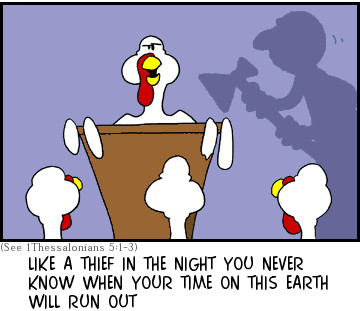
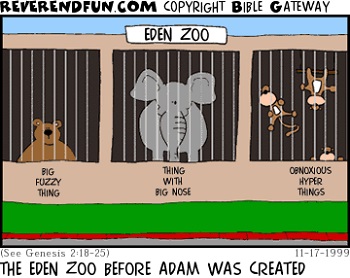
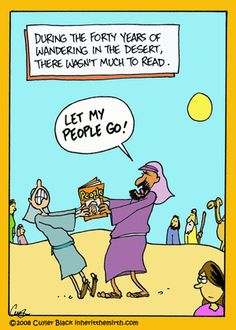
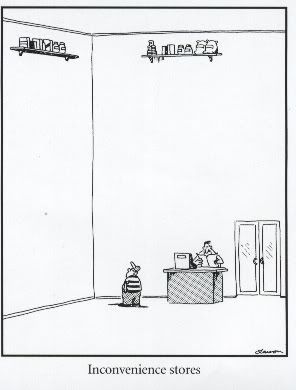
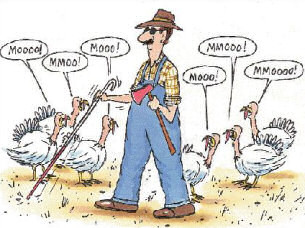


Was the council called by Roncalli also heretical because of the results of his heresy?
The Council was not automatically heretical, but was not an Ecumenical Council of the Catholic Church, because only the Pope can call such a Council.

The Pope Speaks: November 2019
I Am A Catholic

Today we hear of Liberal Catholics and Conservative Catholics. We hear of Vatican II Catholics and Traditionalist Catholics. We hear of Roman Catholics, Old Catholic, Old Roman Catholics, Anglican Catholics, and many other types of Catholics.
At the only real Vatican Council, commonly called the First Vatican Council to distinguish it from the Second Vatican Council a discussion of what is the name of the Church founded by Jesus Christ. It was proposed that the Church should be named the Roman Catholic Church. The Bishops from England, Scotland and Wales put in an objection and asked to be heard by the whole Council. They choose one of their number to speak on their behalf. In England at the time there was the Oxford Movement. Also there was a conservative movement in Anglicanism. Some believed in what is called the Branch Theory that Jesus' Church currently had three branches, Orthodox, Anglican and Roman Catholic. The Bishop objected that adding a word to distinguish members of Jesus' Church from other catholics would support the Branch Theory. The Council approved their objection and decided not to give an official name to Christ's Church.
You may ask why I am not a Traditionalist. It is true Saint Pius X said that the only real Catholics are the traditionalists. What did he mean by traditionalist and who and what are Traditionalists today? On the latter point, there is controversy and even Traditionalism has been separated into various positions. A person I might call a Traditionalist you might not. Also one Traditionalist would not believe another is actually a Traditionalist. The term Traditionalist in Traditionalist Catholic is imprecise. This is why I rejected this three and a half decades ago.
True followers of Jesus Christ have been given two different names, Christians and Catholics. We are called Christians, because Jesus Christ founded our Church. For this reason we call those in the church founded by Martin Luther, Lutherans. We also have Calvinists, Mennonites, etc. Followers of Buddha are called Buddhists and followers of Mohamed have been called Mohammedans. And to be identified as a Christian is excellent, if I am truly Christian, that is I follow Jesus completely and without reservation, accepting all He taught us as we are advised in Sacred Scripture at the end of Saint Matthew's Gospel.
We are called Catholics, because our doctrine and way of life is for all times and all peoples. We follow the Gospel universally, since Catholic means universal. To add a qualifying term to Catholic is to reject that very universality, because on matters of Faith there is only one true position. We are neither liberal nor conservative, liberal or traditional. Either we are Catholic or we are not Catholic.
Today this requires some explanation, because what non-Catholics believe is the Catholic Church actually is not. It is the Church founded by John the Baptist Montini as Paul VI at and after Vatican II. It is called the Church of the Council, which is also translated by them as the Conciliar Church. However, if you drive down the street, the name of their church is still Saint Peter's Catholic Church. Now, obviously, I am not a member of that sect, but I am a Catholic. As Saint Athanasius said: "They may have the churches, but we have the faith." Now I have to explain that I hold to the Catholic Faith as it was taught before Vatican II. Usually I cite the Baltimore Catechism, because they may be familiar with it. Also I cite the Latin Mass, because they may be familiar with it if they are older.
If someone asks if I am a Roman Catholic, I tell them I am not. Although as Bishop of Rome, in one sense it is true, but I know that this is not the sense they will take it. If they ask what diocese I am from, then I say Rome, which gets their attention. If I were to allow myself to be called anything more than just a Catholic, then I am admitting there are other kinds of legitimate Catholics. To allow myself to be called a Traditionalist Catholic admits that Conciliar Catholics may also be legitimate.
I have been called a sedevacantist, but that is not true. I do not believe the Papacy is vacant, but that I am Pope. I have been called a conclavist, a term, like sedevacantism, which was invented long after the movement began. When I became a sede vacantist, it was still two words. However, I did not describe myself as such. Also I was also for a time a home-aloner before the term was invented.
I am a Catholic. If you want to know more, then we can go into more detail, whether briefly or in depth. We live in a a time of confusion and I have written on this in the past. Would that I could simply say that I am a Catholic and leave it at that. However, where I live, there are various kinds of people claiming to be Catholic and my neighbors have heard of at least two of these sects, the Conciliar Church and the Society of Saint Pius X, which has a large compound west of Topeka. Usually, when they see the cassock, they think I am with that group.
Saint Peter wrote (I Peter 3:15): "But sanctify the Lord Christ in your hearts, being ready always to satisfy every one that asketh you a reason of that hope which is in you." Unless asked, I prefer to demonstrate that I am a Catholic by living the Gospel rather than by words. If there was more living the Gospel and less discussing the various issues, the world would be a better place.
If you ask, I am a Christian and I am a Catholic. If you don't ask, I hope I demonstrate this by living as Jesus Christ teaches us to live.


Saint John Cassian
On The Eight Vices
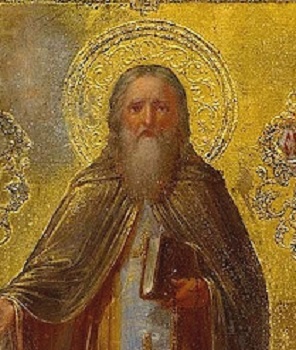
On Control of the Stomach
I shall speak first about control of the stomach, the opposite to gluttony, and about how to fast and what and how much to eat. I shall say nothing on my own account, but only what I have received from the Holy Fathers. They have not given us only a single rule for fasting or a single standard and measure for eating, because not everyone has the same strength; age, illness or delicacy of body create differences. But they have given us all a single goal: to avoid over-eating and the filling of our bellies. They also found a day's fast to be more beneficial and a greater help toward purity than one extending over a period of three, four, or even seven days. Someone who fasts for too long, they say, often ends up by eating too much food. The result is that at times the body becomes enervated through undue lack of food and sluggish over its spiritual exercises, while at other times, weighed down by the mass of food it has eaten, it makes the soul listless and slack.
They also found that the eating of greens or pulse did not agree with everyone, and that not everyone could live on dry bread. One man, they said, could eat two pounds of dry bread and still be hungry, while another might eat a pound, or only six ounces, and be satisfied. As I said, the Fathers have handed down a single basic rule of self-control: 'do not be deceived by the filling of the belly' (Prov. 24:15. LXX), or be led astray by the pleasure of the palate. It is not only the variety of foodstuffs that kindles the fiery darts of unchastity, but also their quantity.
Whatever the kind of food with which it is filled, the belly engenders the seed of profligacy. It is not only too much wine that besots our mind: too much water or too much of anything makes it drowsy and stupefied. The Sodomites were destroyed not because of too much wine or too much of other foods, but because of a surfeit of bread, as the Prophet tells us (cf. Ezek. 16:49).
Bodily illness is not an obstacle to purity of heart, provided we give the body what its illness requires, not what gratifies our desire for pleasure. Food is to be taken in so far as it supports our life, but not to the extent of enslaving us to the impulses of desire. To eat moderately and reasonably is to keep the body in health, not to deprive it of holiness.
A clear rule for self-control handed down by the Fathers is this: stop eating while still hungry and do not continue until you are satisfied. When the Apostle said, 'Make no provision to fulfill the desires of the flesh' (Rom. 13:14), he was not forbidding us to provide for the needs of life; he was warning us against self-indulgence. Moreover, by itself abstinence from food does not contribute to perfect purity of soul unless the other virtues are active as well.
Humility, for example, practiced through obedience in our work and through bodily hardship, is a great help. If we avoid avarice not only by having no money, but also by not wanting to have any, this leads us towards purity of soul. Freedom from anger, from dejection, self-esteem and pride also contributes to purity of soul in general, while self-control and fasting are especially important for bringing about that specific purity of soul which comes through restraint and moderation. No one whose stomach is full can fight mentally against the demon of unchastity. Our initial struggle therefore must be to gain control of our stomach and to bring our body into subjection not only through fasting but also through vigils, labors and spiritual, reading, and through concentrating our heart on fear of Gehenna and on longing for the kingdom of heaven.

Saints from East and West
Saints whose feasts are celebrated this month
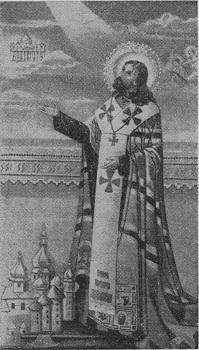
November 12 (Byzantine) - The Holy Martyr Josaphat, Archbishop of Polotsk
In the month of October 1595, at Brest-Litovsk in Lithuania, the dissident Orthodox metropolitan of Kiev and five bishops, representing millions of Ruthenians, decided to seek communion with the Holy See of Rome. The controversies which followed this event were disfigured by deplorable excesses and violence, and the great upholder of Christian unity whose feast is kept today was called on to shed his blood for the cause, whence he is venerated as the protomartyr of the reunion of Christendom.
At the time of the Union of Brest he was still a boy, having been born at Vladimir in Volhynia in 1580 or 1584, and baptized John. His father, a Catholic, was a burgess of a good family called Kunsevich, who sent John to school in his native town and then apprenticed him to a merchant of Vilna. John was not particularly interested in trade, and employed his spare time in mastering Church Slavonic in order that he might assist more intelligently at divine worship and recite some of the long Byzantine office every day; and he got to know Peter Arcudius, who was then rector of the oriental college at Vilna, and the two Jesuits, Valentine Fabricius and Gregory Gruzevsky, who took an interest in him and gave him every encouragement.
At first his master was not favourably disposed towards John's religious preoccupations, but he did his work so well that eventually the merchant offered him a partnership and one of his daughters in marriage. Both offers were refused, for John had decided to be a monk and in 1604 he entered the monastery of the Holy Trinity at Vilna. He induced to join him there Joseph Benjamin Rutsky, a learned convert from Calvinism who had been ordered by Pope Clement VIII to join the Byzantine rite against his personal wishes, and together the two young monks concerted schemes for promoting union and reforming Ruthenian monastic observance.
John Kunsevich, who had now taken the name of Josaphat, was ordained deacon and priest and speedily had a great reputation as a preacher, especially on behalf of reunion with Rome. He led a most austere personal life and added to a careful observance of the austerities of eastern monastic life such extreme voluntary mortifications that he was often remonstrated with by the most ascetic. At his beatification the burgomaster of Vilna testified that "there was not a better religious in the town than Father Josaphat."
Meanwhile, the abbot of Holy Trinity having developed separatist views, Rutsky was promoted in his place and the monastery was soon full, so Father Josaphat was taken away from his study of the Eastern fathers to help in the foundation of new houses in Poland. In 1614 Rutsky was made metropolitan of Kiev and Josaphat succeeded him as abbot at Vilna. When the new metropolitan went to take possession of his cathedral Josaphat accompanied him and took the opportunity of visiting the great monastery of The Caves at Kiev. The community of two hundred monks was relaxed, and they threatened to throw the Catholic reformer into the river Dnieper. He was not successful in his efforts to bring them to unity, but his personality and exhortations brought about a somewhat changed attitude and a notable increase of good-will.
The archbishop of Polotsk at this time was a very old man and a favourer of the dissidents, and in 1617 Abbot Josaphat was ordained bishop of Vitebsk with right of succession to Polotsk. A few months later the old archbishop died and Josaphat was confronted with an eparchy which was as large in extent as it was degraded in life. The more religious people were inclined to schism through fear of arbitrary Roman interference with their worship and customs; churches were in ruins and benefices in the hands of laymen; many of the secular clergy had been married two and three times, and the monks were decadent.
Josaphat sent for some of his brethren from Vilna to help him and got to work. He held synods in the central towns, published a catechism and imposed its use, issued rules of conduct for the clergy, and fought the interference of the "squires" in the affairs of the local churches, at the same time setting a personal example of assiduous instructing and preaching, administration of the sacraments and visiting of the poor, the sick, prisoners and the most remote hamlets. By 1620 the eparchy was practically solidly Catholic, order had been restored, and the example of a few good men had brought about a real concern for Christian life. But in that year a dissident hierarchy of bishops was set up in the territory affected by the Union of Brest, side by side with the Catholic one; and one Meletius Smotritsky was sent as archbishop to Polotsk, who began with great vigour to undo the work of the Catholic archbishop. He zealously spread a report that Saint Josaphat had "turned Latin," that all his flock would have to do the same, and that Catholicism was not the traditional Christianity of the Ruthenian people. Saint Josaphat was at Warsaw when this began and on his return he found that, though his episcopal city was firm for him, some other parts of the eparchy had begun to waver; a monk called Silvester had managed to draw nearly all the people of Vitebsk, Mogilev, and Orcha to the side of Smotritsky. The nobility and many of the people adhered strongly to the union, but Saint Josaphat could do little with these three towns; and not only at Vitebsk but even at Vilna, when the proclamation of the King of Poland that Josaphat was the only legitimate archbishop of Polotsk was publicly read in his presence, there were riots and the life of Saint Josaphat was threatened.
Leo Sapieha, the chancellor of Lithuania and a Catholic, was fearful of the possible political results of the general unrest, and lent too willing an ear to the heated charges of dissidents outside of Poland that Josaphat had caused it by his policy. Accordingly in 1622 Sapieha wrote accusing him of violence in the maintenance of the union, of putting the kingdom in peril from the Zaporozhsky Cossacks by making discord among the people, of forcibly shutting-up non-Catholic churches, and so on. These and similar accusations were made in general terms, and their unjustifiability was amply demonstrated by contemporary ad hoc testimony from both sides: the only actual fact of the sort is the admitted one that Josaphat invoked the aid of the civil power to recover the church at Mogilev from the dissidents. Thus the archbishop had to face misunderstanding, misrepresentation, and opposition from Catholics as well.
There is no doubt that some of the easy reversion to schism was due to the firm discipline and reform of morals that had been inaugurated under Catholic auspices, and Saint Josaphat did not receive the support he was entitled to from the Latin bishops of Poland because of the uncompromising way in which he maintained the right of the Byzantine clergy and customs to equal treatment with those of Rome. He continued doggedly and fearlessly on his way and, Vitebsk continuing to be a hot-bed of trouble, he determined in October 1623 to go there in person again. He could neither be dissuaded nor would he take a military escort. "If I am accounted so worthy as to deserve martyrdom, then I am not afraid to die," he said. He went accordingly, and for a fortnight preached in the churches and visited the houses of all without distinction. He was continually threatened in the streets, and his opponents tried to pick quarrels with his attendants, in order that he might be killed in the ensuing fracas. On the feast of Saint Demetrius the Martyr he was surrounded by an angry mob, and exclaimed: "You people of Vitebsk want to put me to death. You make ambushes for me everywhere, in the streets, on the bridges, on the highways, in the marketplace. I am here among you as your shepherd and you ought to know that I should be happy to give my life for you. I am ready to die for the holy union, for the supremacy of Saint Peter and of his successor the Supreme Pontiff."
Smotritsky was fomenting this agitation, his object doubtless being no worse than to drive his rival from the diocese. But his followers got out of hand, and a plot was laid to murder Saint Josaphat on Novembet 12, if he could not be induced to give excuse for violence before then. A priest named Elias was put up to go into the courtyard of the archbishop's house and to use insulting words to his servants about their master and their religion, and after several complaints Saint Josaphat gave permission for him to be seized if it happened again. On the morning of the twelfth, as the archbishop came to the church for the office of Orthros, he was met by Elias, who began to abuse him to his face; he therefore allowed his deacon to have the man taken and shut up in a room of the house. This was just what his enemies were waiting for: the bells of the town-hall were rung and a mob assembled, demanding the release of Elias and the punishment of the archbishop. After office Saint Josaphat returned to his house unharmed, and let Elias go with a warning, but the people broke in, calling for their victim and striking his attendants. Saint Josaphat went out to them. "My children," he asked, "what are you doing with my servants? If you have anything against me, here I am: but leave them alone" - words remarkably reminiscent of those of another archbishop, Saint Thomas Becket, on a similar occasion. Amid cries of "Kill the papist!" he was brained with a halberd and pierced by a bullet. The mangled body was dragged out and contemptuously cast into the river Dvina.
Saint Josaphat Kunsevich was canonized in 1867, the first saint of the Eastern churches to be formally canonized after process in the Congregation of Sacred Rites. Fifteen years later Pope Leo XIII gave his feast to the whole Western church on the date of November 14; the Ukrainians and others keep it on November 12, or the Sunday following, according to the Julian calendar.
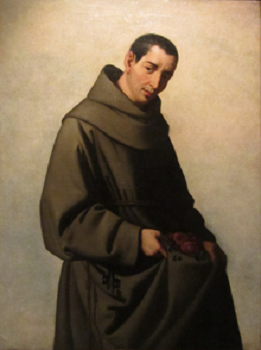
November 12 - Saint Didacus
Didacus was a native of the little town of San Nicolas del Puerto in the diocese of Seville, and his parents were poor folk. Near that town a holy priest led an eremitical life. Didacus obtained his consent to live with him and, though very young, he imitated the austerities and devotions of his master. They cultivated together a little garden, and also employed themselves in making wooden spoons, trenchers, and such-like utensils.
After having lived thus a recluse for some years he was obliged to return to his home, but he soon after went to a convent of the Observant Friar Minors at Arrizafa, and there took the habit among the lay-brothers. After his profession he was sent to the mission of his order in the Canary Islands, where he did a great work in instructing and converting the people. Eventually, in 1445, he, though a lay-brother, was appointed guardian of the chief convent in those islands, called Fuerteventura.
After four years he was recalled to Spain, and lived in several friaries about Seville with great fervour and recollection. In the year 1450 a jubilee was celebrated at Rome and, Saint Bernardine of Siena being canonized at the same time, very many religious of the Order of Saint Francis were assembled there. Didacus went thither with Father Alonzo de Castro, and at Rome he had to attend his companion during a dangerous illness.
His devotion in this duty attracted the notice of his superiors and he was put in charge of the many sick friars who were accommodated in the infirmary of the convent of Ara Caeli. Saint Didacus was thus engaged for three months, and is said to have miraculously restored some of his patients. He lived for another thirteen years after his return to Spain, chiefly at the friaries of Salcedo and Alcala in Castile.
In 1463 he was taken ill at Alcala, and in his last moments asked for a cord (such as thr friars wear); he put it about his neck and, holding a cross in his hands, begged the pardon of all his brethren assembled about his bed. Then, fixing his eyes on the crucifix, he repeated with great tenderness the words of the hymn on the cross, "Dulce lignum, dulces clavos, dulce pondus sustinet," and peacefully died on November 12. Several miracles were attributed to him in his lifetime, and many more through his intercession after his death. King Philip II, out of gratitude for one in favour of his son, solicited the saint's canonization, which was decreed in 1588.


Books to feed your faith!
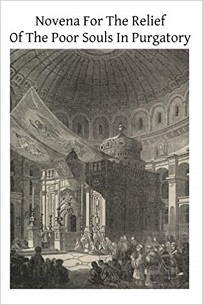
Novena For the Relief of the Poor Souls in Purgatory
$4.00
Novena For the Relief of the Suffering Souls in Purgatory We present this small treatise to pious persons, entreating them to peruse it. Long ago the Holy Ghost said: "It is a holy and wholesome thing to pray for the dead, that they may be loosed from their sins." (II Maccabees 12:46) Our Lord shed tears in seeing the tomb of Lazarus, and the Church, well acquainted with the feelings of her Divine Founder, is incessantly recommending charity for the Souls suffering in Purgatory.
One of her eminent doctors, St. Thomas of Aquinas, has said that: "Of all prayers, the most meritorious, the most acceptable to God are prayers for the dead, because they imply all the works of charity, both corporal and spiritual." But there are many people unconscious of the fact that charity for the "Poor Souls" is profitable to the living as well as to the dead. It is the teaching of the most learned theologians, viz: St. Alphonsus Liguori, Sylvius, Robert Bellarmine, Bonacina, and Suarez. "It is true," says St. Alphonsus, "they are unable to pray or merit anything for themselves, yet, when they pray for others, they are heard by God." Let us refer to Bellarmine: "The Souls in Purgatory," says he, "can pray for those, who address to them their petitions, and obtain from God help, forgiveness, assistance against temptations, and, all favors, both temporal and spiritual, which they may need." Many Saints have experienced this wonderful assistance.
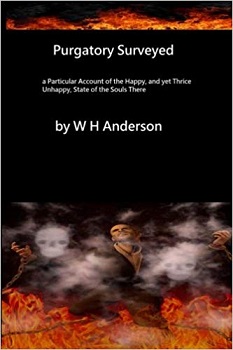
Purgatory Surveyed
$14.95
This quaint, but forcible and edifying book, was partly translated, partly, as the translator acknowledges, "disposed, abridged, or enlarged," from a treatise by Father Stephen Binet, a French Jesuit, which is entitled "De Festat heureux et malheureux des ames souffrantes du Purgatoire, ct des moyens souverains pour n'y aller pas, ou y demeurer fort peu; ou sont traictees toutes les plus belles questions du Purgatoire." Paris, 1625, in 12. Douay, 1627, in 24.
Father Binet was born at Dijon in 1569, entered the Society in 1590, and, having been successively Rector of its principal houses in France, died at Paris, 1639. This treatise is numbered 20 out of 36 ascetical works composed by him, and given in De Backer's Bibliotheque des Ecrivains de la Compagnie de Jesus. Their titles make one wish that some competent pen may be found to reproduce them for us in our own tongue.
The translator, who simply signs himself by the initials, R.T., was Father Richard Thimelby, also of the Society of Jesus. In those evil days, when it was death to be known to say Mass, or to reconcile anyone to the true Faith, almost every priest was furnished with an alias and Father Thimelby accordingly went sometimes by the name of Ashby. He is described in Dr. Oliver's "Collections" as being "of a genteel and ancient family in Lincolnshire." This is abundantly justified by notices occurring of the family, at two different periods of English history. Thus: (I.) In Sir S. Meyrick's Heraldic Visitations of Wales, and part of the Marches, Mention is made of Richard Thumbleby (Thimbleby), knight, who was one of the bailiffs of Harddlech, or Harlech, in the county of Lincoln, and son to John Thumbleby, armiger to King Henry V.
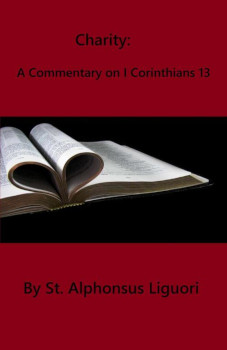
Charity: A Commentary on I Corinthians 13
$9.99
Saint Alphonsus Ligouri -Charity is patient, is kind: charity envieth not, dealeth not perversely; is not puffed up; Is not ambitious, seeketh not her own, is not provoked to anger, thinketh no evil; Rejoiceth not in iniquity, but rejoiceth with the truth; Beareth all things, believeth all things, hopeth all things, endureth all things. (I Corinthians 13:4-7) Saint Paul wrote wonderfully about charity in the 13th chapter of First Corinthians. Saint Alphonsus takes these words and gives a simple view of the Catholic way of life and an excellent introduction into the spiritual life. This is excerpted from his work, The Holy Eucharist, which has been excerpted from The Complete Works of Saint Alphonsus, which was compiled and translated by Father Eugene Grimm. (1835-1891)
For More Good Traditional Catholic Books:


Pumpkin Gingerbread

Ingredients
3 cups sugar
1 cup vegetable oil
4 eggs
2/3 cup water
1 (15 ounce) can pumpkin puree
2 teaspoons ground ginger
1 teaspoon ground allspice
1 teaspoon ground cinnamon
1 teaspoon ground cloves
3 1/2 cups all-purpose flour
2 teaspoons baking soda
1 1/2 teaspoons salt
1/2 teaspoon baking powder
Directions
Preheat oven to 350 degrees F (175 degrees C). Lightly grease two 9x5 inch loaf pans.
In a large mixing bowl, combine your sugar, oil and eggs, there; beat until smooth. Add water and beat until well blended. Stir in pumpkin, ginger, allspice cinnamon, and clove.
In medium bowl, combine flour, soda, salt, and baking powder. Add dry ingredients to pumpkin mixture and blend just until all ingredients are mixed. Divide batter between prepared pans.
Bake in preheated oven until toothpick comes out clean, about 1 hour.
Famous Butter Chicken
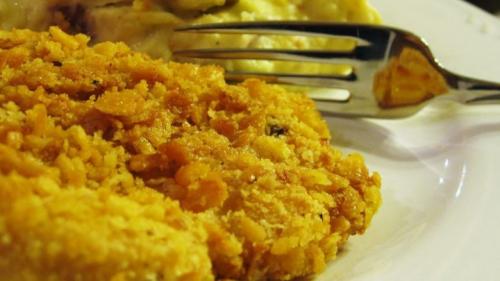
Ingredients:1 cup crushed buttery round cracker crumbs
1/2 teaspoon garlic salt
ground black pepper to taste
4 skinless, boneless chicken breast halves
1/2 cup butter, cut into pieces
Directions
Preheat oven to 375 degrees F (190 degrees C).
Place eggs and cracker crumbs in two separate shallow bowls. Mix cracker crumbs with garlic salt and pepper. Dip chicken in the eggs, then dredge in the crumb mixture to coat.
Arrange coated chicken in a 9x13 inch baking dish. Place pieces of butter around the chicken.
Bake in the preheated oven for 40 minutes, or until chicken is no longer pink and juices run clear.

Video sermons and instructions: Timeless timely truths for living the Faith
The Road to Heaven Requires Penance
Studying the Saints
Conversations From The Arm Chair
Christ the King 2019

Encouragement for Today
Therefore encourage one another and build one another up.... I Thessalonians 5:11
We believe...
that through our assorted podcasts, audio downloads and devotional blogs, you will find an assorted Treasure Chest of...
Sermons
Devotionals
Scripture Studies
Catechism Lessons
Daily Blogs
...that will be a help in your faithful walk with the Lord.
LEARN MORE AT THE ENCOURAGEMENT FOR TODAY WEBSITE: https://www.encouragementfortoday.com
Not All Pandas Are Giant

“Thy righteousness is like the great mountains; thy judgments are a great deep: O LORD, thou preservest man and beast.” - Psalm 36:6
The red panda has to be one of the world's most attractive animals, with a cute white face and a ginger red body. As its name suggests, it was once thought to be closely related to the giant panda, with whom it shares a number of traits, including a diet of bamboo. However, the giant panda has been placed in the same family as bears, while the red panda was thought to have been part of raccoon family. Even evolutionists now think the relationship between giant pandas and red pandas is remote, and the red panda has now been placed in a family all of its own, with no other extant species – called ailuridae. Creationists treat ailuridae as a baramin, and it causes us no problem to accept that this baramin is a single stick in the creationist orchard of life – a baramin containing only one species.
Red pandas are supposed to be a good proof of evolution. Evolutionists like to class them as meat eaters because of their teeth and claws. However, their diet consists almost entirely of bamboo. If this is supposed to be the result of the upward march of evolutionary natural selection, then it seems to be an unusual route. Their bodies cannot digest bamboo well, so they have to eat a great deal of it in order to get the nutrients that they need.
The uniqueness of the red panda is, however, the sort of thing we would expect in a creation made by God.

Catechism Catch-Up
The Ten Commandments-Lesson 1
What are the Ten Commandments?
I am the LORD your God. You shall worship the Lord your God and Him only shall you serve.
You shall not take the name of the Lord your God in vain.
Remember to keep holy the Sabbath day.
Honor your father and your mother.
You shall not kill.
You shall not commit adultery.
You shall not steal.
You shall not bear false witness against your neighbor.
You shall not covet your neighbor’s wife.
You shall not covet your neighbor’s goods.
God's 10 Commandments were in effect from the beginning of creation, including in the Garden of Eden.
Many people are aware that God gave the 10 Commandments to the nation of Israel from Mount Sinai, as recorded in Exodus 20:1-17. This event occurred about two months after Israel left Egypt.
These commandments were known prior to the time that God gave them to Israel on two stones. Look at Genesis 26:5, “Because Abraham obeyed my voice, and kept my precepts and commandments, and observed my ceremonies and laws.”
Since Abraham obeyed God’s voice and kept His commandments hundreds of years before Moses, then surely those commandments must have been known before Mount Sinai. The Bible tells us that sin is iniquity. That is, in the greek language lawlessness. So sin is breaking God’s law (1 John 3:4). The Bible refers to sin a number of times before the time of Moses (Genesis 4:7; 13:13; 18:20; 39:9; 42:22; 50:17; etc.), so God’s law must have been revealed, at least to some people. In fact, the Bible gives evidence that the 10 Commandments were known and were understood as being very important.
The 10 Commandments before Moses
The First Commandment states: “Thou shalt not have strange gods in my sight” and it continues with... “Thou shalt not make to thyself a graven thing, nor the likeness of any things, that are in heaven above, or that are in the earth beneath, or that abide in the waters under the earth.Thou shalt not adore them, and thou shalt not serve them. ” (Deuteronomy 5:6-9 see also Exodus 20: 2-5)
Hundreds of years earlier God was working with the patriarch Jacob. After God spoke to Jacob, notice what he did with the idols that were among his household:
“In the meantime God said to Jacob: Arise, and go up to Bethel, and dwell there, and make there an altar to God, who appeared to thee when thou didst flee from Esau thy brother. And Jacob having called together all his household, said: Cast away the strange gods that are among you, and be cleansed and change your garments. Arise, and let us go up to Bethel, that we may make there an altar to God: who heard me in the day of my affliction, and accompanied me in my journey. So they gave him all the strange gods they had, and the earrings which were in their ears: and he buried them under the turpentine tree, that is behind the city of Sichem.” (Genesis 35:1-4).
So we see Jacob understood the importance of getting rid of idols and only worshipping the true God.
The Second Commandment says, “Thou shalt not take the name of the Lord thy God in vain: ” (Exodus 20:7).
It seems the patriarch Job lived before Moses, possibly about the time of Isaac, according to the Jamieson-Fausset-Brown Bible Commentary, quoting the historian Eusebius. Job was concerned that his children might have been taking God’s name in vain, and he knew that was wrong.
“And when the days of their feasting were gone about, Job sent to them, and sanctified them: and rising up early offered holocausts for every one of them. For he said: Lest perhaps my sons have sinned, and have cursed God in their hearts. So did Job all days.” (Job 1:5).
The Third Commandment tells us to “Remember that thou keep holy the sabbath day.” (Exodus 20:8). To remember the Sabbath is to recall something that was established earlier. Notice Genesis 2:3, “And he blessed the seventh (or the Sabbath) day, and sanctified it: because in it he had rested from all his work which God created and made.”
The 10 Commandments were known before Moses, and they are still important laws for all peoples today. God gave His laws for our good. They are based on love and help us know how to show love to God and our fellow man.Interestingly, Israel was reminded to remember the Sabbath even before they came to Mount Sinai. This was when God gave them manna to eat.
And he said to them: "This is what the Lord hath spoken: 'Tomorrow is the rest of the sabbath sanctified to the Lord. '“ ...And Moses said: "Eat it to day, because it is the sabbath of the Lord: to day it shall not be found in the field. Gather it six days: but on the seventh day is the sabbath of the Lord, therefore it shall not be found." And the seventh day came: and some of the people going forth to gather, found none. And the Lord said to Moses: "How long will you refuse to keep my commandments, and my law" (Exodus 16:23-28).
So even before they arrived at Mount Sinai, God expected the people to obey His commandments, including the Third Commandment.
The Fourth Commandment says to “Honour thy father and thy mother,” (Exodus 20:12). Jacob and Esau both had dishonored their parents, but Jacob finally did obey. “And Esau seeing that his father had blessed Jacob, and had sent him into Mesopotamia of Syria, to marry a wife thence; and that after the blessing he had charged him, saying: Thou shalt not take a wife of the daughters of Chanaan: And that Jacob obeying his parents was gone into Syria:” (Genesis 28:6-7).
“Thou shalt not kill. (murder)” is the Fifth Commandment (Exodus 20:13). God told Cain he was to rule over and avoid sin, as anger was in Cain’s heart.
“ And the Lord said to him: Why art thou angry? and why is thy countenance fallen? If thou do well, shalt thou not receive? but if ill, shall not sin forthwith be present at the door? but the lust thereof shall be under thee, and thou shalt have dominion over it. And Cain said to Abel his brother: Let us go forth abroad. And when they were in the field, Cain rose up against his brother Abel, and slew him.” (Genesis 4:6-8). Cain’s anger led to the sin of murder.
After the Flood, people knew that God was against murder and demanded a penalty for it. “For I will require the blood of your lives at the hand of every beast, and at the hand of man, at the hand of every man, and of his brother, will I require the life of man. Whosoever shall shed man's blood, his blood shall be shed: for man was made to the image of God.” (Genesis 9:5-6).
The Sixth and Ninth Commandment, “You shall not commit adultery” (Exodus 20:14), "neither shalt thou desire his wife" (Exodus 20:17) was known and understood by Joseph.
And after many days his mistress cast her eyes on Joseph, and said: "Lie with me." But he, in no wise consenting to that wicked act, said to her: "Behold, my master hath delivered all things to me, and knoweth not what he hath in his own house: Neither is there any thing which is not in my power, or that he hath not delivered to me, but thee, who art his wife: how then can I do this wicked thing, and sin against my God?" (Genesis 39:7-9).
God also had warned Abimelech, king of Gerar, not to commit adultery with Sarah. "And God came to Abimelech in a dream by night, and he said to him: 'Lo thou shalt die for the woman thou hast taken: for she hath a husband.'" (Genesis 20:3).
“You shall not steal,” the Seventh Commandment (Exodus 20:15), was apparently on Jacob’s mind when he discussed his wages with Laban.
“And my justice shall answer for me to morrow before thee when the time of the bargain shall come: and all that is not of divers colours, and spotted, and brown, as well among the sheep as among the goats, shall accuse me of theft.” (Genesis 30:33).
The Eighth and Tenth Commandments, “Thou shalt not bear false witness against thy neighbour.” and, “Thou shalt not covet thy neighbour's house:...nor his servant, nor his handmaid, nor his ox, nor his ass, nor anything that is his.” (Exodus 20:16-17), have been breached ever since Eve saw and desired (coveted) the fruit from the tree of the knowledge of good and evil. Adam ate of it as well (Genesis 3:6), and then both of them justified their actions (verses 10-13). The result of their disobedience to God was that they were kicked out of the Garden of Eden.
The 10 Commandments existed before Moses and are still important today.
In summary, the 10 Commandments were known before Moses, and they are still important laws for all peoples today. God gave His laws for our good. "And keep the commandments of the Lord, and his ceremonies, which I command thee this day, that it may be well with thee" (Deuteronomy 10:13).
Living Catholic:
What to Make of Accusation
It is everywhere we turn these days. Social media has created a forum for endless accusation against other Christians. It seems that every day someone is sending out links to an article accusing a Bishop, a Priest, a Catholic, etc. It can affect your spirit. In fact it is almost guaranteed to affect your spirit. Many Christians are struggling with depression and discouragement because they keep reading accusation after accusation. If Christians do not do the right thing we are hurting the cause of Christ but we are also hurting our own spirits which hurts our ability to serve Christ as we should. There are some things I do when accusation against others are presented to me. Take them or leave them, but I believe they are worthy of serious consideration.
1. Don't receive accusation against other Christians.
You don't need to know. It does you no good. When I read accusations against other Christians it hurts my spirit. If I am going to guard my spirit then I can't allow myself to even receive these accusations. I must reject them. I must purpose to reject them. I must be diligent and vigilant in rejecting them.
2. If you already have received the accusation do not align yourself with it.
Let me go further and say be careful that you don't identify yourself with it. I refuse to be a part of any group whose purpose is to accuse even if it's disguised as trying to “right a wrong.” You do not help people by using accusation. That's not the answer. I do not want my name associated with accusation. The cause might be good but the accusation corrupts the cause. Don't miss that last point. The cause may be good but the accusation behind the cause corrupts the virtue of the cause. Accusation is a terrible basis for a cause. Someone can disguise it as a noble crusade, but that is NOT what it is.
3. Do not listen to one side unless you can hear the other side.
This would save a lot of heartache. If a friend comes to me and accuses his friend and I receive it, I am unable to respond justly because I have not heard the other side. If I know anything about people I know that people tell the side that most benefits them which means I am not necessarily getting the whole truth. I am getting their slant. The best thing to do is to avoid one-sided accusation. By the way most accusation is one-sided and that in itself makes it unjust.
4. Never assume guilt.
I repeat never assume guilt. There is nothing so unjust as receiving an accusation and then passing judgment in your mind. That's the problem with receiving it. It is difficult not to pass judgment even subconsciously.
5. Take it to the Lord quickly.
You have accepted a burden on your shoulders you're not capable of bearing. You may think so but you are wrong. It is going to affect your spirit. Seek Gods' help in putting aside the accusation. Let God be God. Pray for the accused and the accuser. Don't pray for an outcome. Pray for God to deal in the hearts of the individuals to accomplish its purpose.
6. Become known as one who rejects accusation.
Let me make something very clear. This will not make you popular but popularity is not the issue. Doing what's right is the issue whether it makes you popular or not. Most people want to believe what they are told and that's why they receive it. We accept what we want to be true. When you become known as one who rejects it, others will reject you. The good news is you won't have to deal with accusations and you can live in peace.
7. Live above the clouds.
The old saying, “ignorance is bliss” is true. Do not wade through the muck and the mire of accusation. Try to stay above the clouds and help everybody you can.
The most important reason why we must be careful how we deal with accusation is because we must guard our spirits. I have never felt better after reading accusation. I have felt dirty. I have felt angry. I have felt frustrated. I have not felt edified. Should that surprise us? Satan is the accuser. How could any child of God feel good about accusation? How? I don't get it. Accusation goes against the very grain of the Holy Spirit who lives within us. Don't grieve the spirit by allowing accusation to get into your head because it will eventually work its way into your heart.
To Learn More Principles For Life Go To: Resources: Principles of Life

Pray for the Holy Father! Pray with the Holy Father!
-
Your prayers are asked this month and every month for the intentions of the Holy Father, Pope Michael.
-
Keep us in your prayers as we begin our new Podcast Ministry, a new way to reach out in the missionary work of the Church! We ask for prayers for our other activities world wide. We have made good contacts in the Philippines and Japan and ask prayers that these contacts will bear much fruit for the salvation of souls.
-
Be sure to keep St. Helen Catholic Mission in your prayers. Why not go on over to the site now and see what they have to offer and how you might be able to help!
-
Also we ask you to keep in prayer for our Mission: St. Ignatius of Antioch in Arkansas City, Kansas.
-
Your prayers are asked for Father Francis Dominic as he embarks upon the important work entrusted to him within the Church.
-
Pray for those outside the Church and those who do not know God, that they may see the light of grace and be led safely home to the refuge of the Holy Catholic Church.
-
As always, we also ask that you pray for yourself! Never forget your own state of soul. God is calling you to His service in His love. We know that our Lord can count on you to answer.
-
We are all praying especially for you, too. May you correspond with every grace of God!
-
In what other needs or intentions may we pray for you? Let us know!
-
Let us remember that the Church runs on prayer. Without your prayers, God will not work in hearts and souls to bring them to a knowledge of the truth. (I Timothy 2:4)



To Donate by Mail:
Our address is
Vatican in Exile
829 NE Chester
Topeka, Kansas 66616
Make Checks payable to:
Vatican in Exile






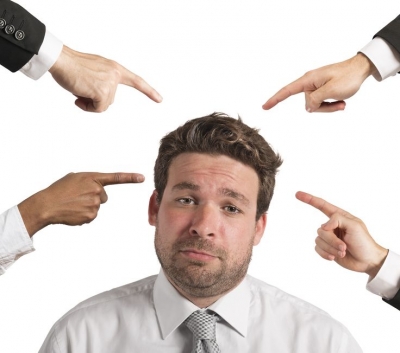



 Follow
Follow


